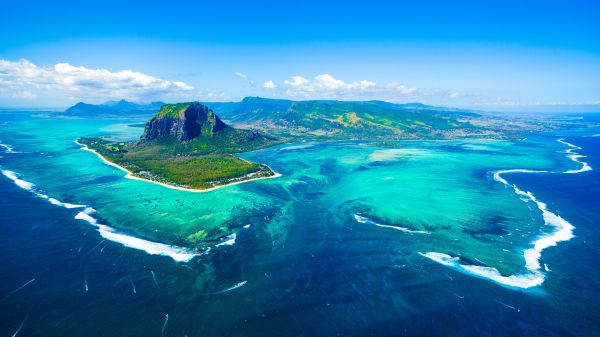Preserving Paradise: Sustainable Practices for Small Island Conservation

This blog was posted on behalf of Chitisha Gunnoo, a Doctoral Candidate at the University of Mauritius researching SDG aligned Education in Mauritius.
As a research student in SDG-aligned education, I have developed a deep interest in the preservation of our fragile ecosystems and the lessons history has taught us. Today, I want to shed light on the beautiful island nation of Mauritius and the importance of sustainable practices for small island conservation. Nestled in the Indian Ocean, Mauritius is renowned for its pristine beaches, vibrant coral reefs, and unique biodiversity. However, it has also faced its share of calamities, demonstrating the resilience required to protect and preserve this paradise.
Lessons from History
Mauritius has a rich history that intertwines with its environmental challenges. The island's colonization resulted in the introduction of non-native species, leading to the loss of indigenous flora and fauna. The once-thriving dodo bird, native to Mauritius, is a tragic example of how human activities can drive a species to extinction. However, these lessons from the past have sparked a newfound commitment to conservation and sustainability.
Calamities and Resilience
In recent years, Mauritius has faced significant environmental challenges, testing its resilience. The devastating oil spill in 2020, caused by a grounded vessel, threatened the island's delicate marine ecosystems. However, the response from local communities, NGOs, and international support demonstrated the power of collective action in the face of adversity. The incident further highlighted the urgent need for sustainable practices to safeguard the island's natural treasures.
Sustainable Practices for Small Island Conservation
Mauritius has embraced a range of sustainable practices to protect its delicate ecosystems. One notable initiative is the establishment of marine protected areas (MPAs) that safeguard coral reefs, marine life, and critical habitats. Additionally, the promotion of sustainable tourism practices, such as responsible snorkeling and diving, helps minimize the impact on fragile marine ecosystems.
Renewable energy plays a pivotal role in Mauritius' sustainability efforts. The island has invested in solar and wind energy projects, reducing its reliance on fossil fuels and lowering carbon emissions. These initiatives not only contribute to mitigating climate change but also ensure a more resilient energy supply for the island's inhabitants.
Education and Awareness
Education and awareness are crucial for fostering a culture of sustainability on the island. Mauritius has implemented SDG-aligned education programs that promote environmental stewardship and instill a sense of responsibility among its citizens. By engaging students in hands-on conservation activities and promoting the importance of biodiversity, Mauritius is nurturing a generation of environmental champions.
Conclusion
As a research student passionate about sustainable development, I am inspired by Mauritius' commitment to preserving its paradise through sustainable practices. The island's history and resilience remind us of the delicate balance between human activities and the natural environment. By implementing marine protected areas, embracing renewable energy, and prioritizing education and awareness, Mauritius serves as a shining example of small island conservation.
